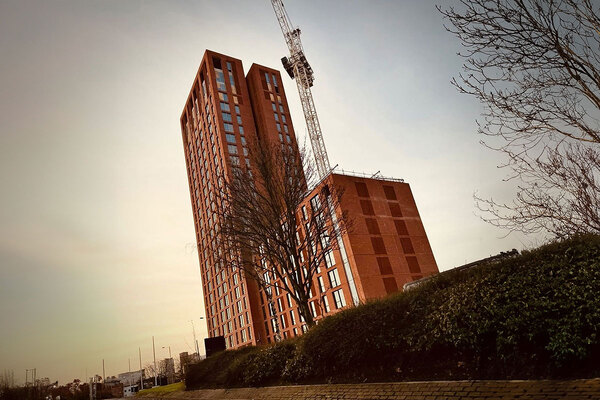Regulatory judgements: council breaches Home Standard after fire and electrical safety failings
Norwich City Council breached the Home Standard after it was found to have 1,000 electrical safety assessments overdue, the Regulator of Social Housing (RSH) has revealed.
In its latest round of regulatory judgements, the English regulator found that the local authority failed to meet statutory health and safety requirements in relation to fire, electrical, asbestos and water safety.
It found after a self-referral from the council that a number of fire risk assessments (FRAs) were overdue, including for a small number of high-risk buildings and sheltered schemes, with the council “unable to provide information on outstanding FRA remedial actions”.
Norwich Council reported that 1,000 electrical inspections were overdue, including around 200 communal area tests. It was also unable to provide information on which, if any, remedial actions it took to address these issues.
The council could not provide any data on whether either communal or domestic asbestos surveys were overdue. The regulator also learned that hundreds of assessments for legionella bacteria in water were overdue, including in high-risk buildings and sheltered accommodation.
“Taking all of this information into account, the regulator concluded that Norwich City Council has breached the Home Standard and, as consequence, there was the potential for serious detriment to tenants,” the judgement said.
Norwich Council has since worked with an external consultant to develop and implement an action plan to strengthen its systems and return to compliance.
A programme of work has started, while the regulator was “assured” the council has taken “immediate and appropriate action to mitigate the risks to tenants while the programme is being delivered”.
The RSH said it would not take statutory action at this stage because it had assurances that the situation was being remedied.
Elsewhere, the regulator hit housing association Accord, which recently merged with GreenSquare, with a governance downgrade.
The judgement downgraded Accord from G1 to G2 and reconfirmed its V2 grade.
The G2 and V2 gradings mean that the association is compliant with regulatory standards but could improve in areas of governance and financial viability.
It follows a regulatory notice from the regulator earlier this month which found that GreenSquareAccord had breached the Home Standard after it was discovered that hundreds of its homes did not have a current FRA and more than 10,000 had never had an electrical inspection.
In the wake of the findings, the 25,000-home association, which self-referred to the RSH after its merger in April, apologised for the failings.
Chair Elisabeth Buggins stepped down after only seven months in the role.
According to its latest judgment, the RSH said the housing association, which has homes across the Midlands, Wiltshire, Oxfordshire and Gloucestershire, must “ensure that actions being taken since the merger to strengthen its governance and compliance frameworks are robust and based on reliable data”.
The regulator said it has assurance that the housing association has an adequately funded business plan, but that its plan currently forecasts a very low level of stock investment within legacy Accord properties.
“Improvements in stock condition data may introduce significant additional costs in the early years of the plan, which, in combination with the delivery of extensive post-merger efficiencies, is a material risk which Accord will need to manage to ensure continued compliance,” the judgement said.
Ruth Cooke, chief executive of GreenSquareAccord, said: “We are genuinely sorry about this breach of standards. We understand that affected customers will feel let down – and we are committed to being open and transparent as we work to put this right.
“The GreenSquareAccord team is already working to correct these mistakes. Our teams of internal and external surveyors and engineers are assessing all the properties where we need assurance that assessments are correct and up to date, and we are carrying out any identified remedial work as a matter of urgency.”
The regulator also confirmed an assessment of Norwich-based Broadland Housing Group, first made in strapline form in January, grading the association’s financial viability at V2, but it changed the reason for that grading.
This means that while Broadland, which manages 5,000 homes across Norfolk and North Suffolk, meets the RSH’s viability requirements and has financial capacity to deal with a reasonable range of adverse scenarios, it must manage material risks to ensure continued compliance.
“Broadland [has] a number of material risks which it continues to need to manage to maintain compliance,” the regulator said. “A significant proportion of its revenue is derived from non-social housing activities, including homes for outright sale.”
“This gives rise to downside risks, including exposure to the housing market,” the RSH added. “In addition, increased investment in its existing stock weakens interest cover and limits Broadland’s capacity to absorb a wide range of adverse events.”
The judgement on Broadland reflected concerns raised in the regulator’s Sector Risk Profile earlier this month, in which it noted that spending on existing stock – due to concerns over building safety and quality, as well as the need to decarbonise – had seen many providers’ interest cover deteriorate.
Michael Newey, Broadland’s the CEO, described the outcome as a "fair result of where we see ourselves".
"We intentionally stretch ourselves financially to both maximise the number of new affordable homes we build each year, and to ensure we maintain our investment in our tenants’ homes and support them to sustain their tenancies," he said.
Broadland maintained its G1 governance grading. “The regulator has assurance that Broadland’s governance arrangements enable it to adequately control the organisation and to continue meeting its objectives,” the RSH said.
Chris Ewbank, the assocations’s chair, said: "We are pleased the RSH recognised the strength of our governance arrangements – we benefit from a strong and committed team of non-executive directors who work together to ensure Broadland is well run and delivers against our enduring purpose.
"As long as there is housing need, we will continue to stretch ourselves financially to make that positive difference, while ensuring that risks are well-managed,” Mr Ewbank added
Alongside its narrative judgements, the RSH issued 21 strapline judgements today.
Of these, 14 upheld G1/V1 grades on governance and financial viability – the highest available rating.
These included 125,000-home Clarion, the UK’s largest housing association, which was recently cleared by the RSH in relation to a possible standard breach in the wake of an ITV News investigation that revealed widespread disrepair on one of its London estates.
Other major landlords to retain their top grading included 105,000-home L&Q, which was also a focus of the ITV investigation, and 12,000-home One Manchester.
Meanwhile, seven organisations retained G1/V2 gradings. Among these was 60,000-home The Guinness Partnership.
Apart from Accord, no landlords were graded below G1/V2 in this latest round of judgements from the RSH.
Sign up for our regulation and legal newsletter
Already have an account? Click here to manage your newsletters












